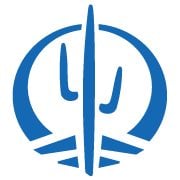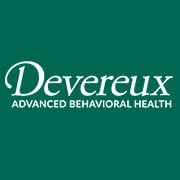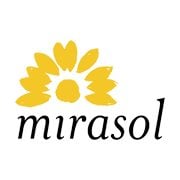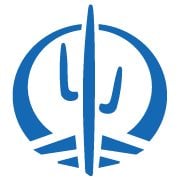Joan McNamara Center for New Directions
Drug Rehab Center in Tucson, Arizona
- Opioid Addiction
- Dual Diagnosis
- Drug Addiction
- Alcoholism
The Joan McNamara Center for New Directions in Tucson, Arizona is an addiction treatment center that specializes in treating alcoholism, opioid addiction, and dual diagnosis, offering detoxification, drug rehabilitation, dual-diagnosis services, inpatient treatment, and trauma therapy with a staff of experienced professionals, accredited by CARF, and accepting private health insurance.
About This Arizona Facility
Joan McNamara Center for New Directions, located in Tucson, Arizona, is a private rehab facility that has been providing comprehensive addiction treatment services since its establishment. The center specializes in treating alcoholism, drug addiction, dual diagnosis, mental health and substance abuse, and opioid addiction, offering a range of programs tailored to meet the unique needs of each individual.
• Experienced staff of professionals delivering high-quality, personalized care
• Accredited by the Commission on Accreditation of Rehabilitation Facilities (CARF)
• Accepts private health insurance, making treatment more accessible
• Offers trauma therapy to address underlying issues contributing to addiction
The Joan McNamara Center for New Directions is committed to providing a comprehensive approach to addiction treatment, addressing both the physical and psychological aspects of substance abuse. Their CARF accreditation demonstrates their dedication to maintaining the highest standards of care and ensuring the best possible outcomes for their clients.
The center offers a range of treatment options, including detoxification, drug rehabilitation, dual-diagnosis services, and inpatient treatment. These programs are designed to help individuals overcome their addictions and develop the skills necessary to maintain long-term sobriety.
In addition to treating substance abuse disorders, the Joan McNamara Center for New Directions also provides care for co-occurring mental health conditions, such as depression, anxiety, and trauma. By addressing these underlying issues, the center aims to give clients the best chance at achieving lasting recovery and improved overall well-being.
Genders
Ages
Modality
Additional
Accreditations

CARF
The Commission on Accreditation of Rehabilitation Facilities (CARF) is a non-profit organization that specifically accredits rehab organizations. Founded in 1966, CARF's, mission is to help service providers like rehab facilities maintain high standards of care.
Conditions and Issues Treated
Opioid addiction treatment should be done in a medically supervised drug rehab. Opioid addiction treatment will include detoxification and drug rehab counseling to help both the user and their loved ones learn how to live a successful sober lifestyle. Methadone, buprenorphine, and naltrexone are three medications that can help treat opioid addiction. Individual drug rehab counseling sessions can be helpful to discuss any questions or concerns with the drug treatment program.
When addiction and psychiatric issues co-occur, the addict’s recovery is more successful when both conditions are treated. A dual diagnosis refers to a condition in which the patient is diagnosed with two health issues: addiction and bipolar disorder.
Usually, dual diagnosis sufferers are prescribed a combination of treatments for each condition. The most common therapies are psychotherapy, behavioral therapy, spiritual counseling, 12-step programs, and medication management.
Psychiatric conditions are an obstacle to recovery because they can create roadblocks to a healthy lifestyle. Drugs and alcohol may be used as a means of self-medication, which can have dangerous consequences. Over time, addicts build up a tolerance and suffer withdrawal symptoms when drug use is stopped.
With the proper treatment, dual diagnosis sufferers can overcome their conditions and achieve lasting sobriety.
Levels of Care Offered at Joan McNamara Center for New Directions
This center offers a variety of custom treatment tailored to individual recovery. Currently available are Detox, Drug Rehab, Dual-Diagnosis, Inpatient, with additional therapies available as listed below.
Detoxification is the first step in drug addiction treatment. A controlled environment where symptoms can be managed with medication and close observation is provided by drug detoxification. Detoxification is an essential step in the recovery process, but it is also one of the most dangerous. Due to the potential danger, it’s critical to understand what detoxification is and how to complete it safely.
A detox program helps the person physically withdraw from drugs and helps them track their progress. So, suppose the person isn’t ready for sobriety (or relapses). In that case, the treatment professionals can catch it early and help re-orient them towards recovery.
Inpatient treatment is an option that provides addicts with a supportive environment in which they can stop using. This type of intensive care and supervision is appropriate for those who were unable to quit on their own or need more structure than they could get from outpatient treatment, such as the addict most in need of this level of care.
The goal of inpatient rehab is for the addict to stay focused on sobriety and remain free of mood altering substances. Inpatient treatment programs usually offer the following: detox, therapy groups, one-on-one counseling, medication management and aftercare planning.
Therapies & Programs
Trauma therapy helps people dealing with addiction by allowing them to confront the traumas of their past and move past them. It is important to note that trauma therapy should not be confused with PTSD (post-traumatic stress disorder) Rather, it is used to treat the effects of trauma, which are often at the root of addiction.
Payment Options Accepted
For specific insurance or payment methods please contact us.
Is your insurance accepted?
Ask an expert, call (888) 674-0062
Additional Details
Specifics, location, and helpful extra information.
Tucson, Arizona 85716 Phone Number(520) 628-4019 Meta DetailsUpdated April 15, 2024
Staff Verified
Patient Reviews
There are no reviews yet. Be the first one to write one.
Tucson, Arizona Addiction Information
Arizona has some of the highest rates of prescription drug abuse in the United States. Methamphetamines, heroin and morphine are among the most commonly abused substances. Prescription pain relievers were prescribed to 348 million people in 2012, enough to medicate every adult in Arizona for 2 full weeks. The number of people with substance use disorders in Arizona has remained relatively constant over the past few years.
In Tucson, Arizona, drug addiction is a serious issue. In fact, according to recent statistics, there are over 15,000 people in the city who are addicted to drugs. This accounts for about 5% of the population. Tucson's most commonly abused drugs include heroin, methamphetamine, and cocaine. In Tucson, Arizona, the types of treatment available include inpatient rehabilitation, outpatient rehabilitation, and 12-step programs.
Treatment in Nearby Cities
- Sacaton, AZ (74.1 mi.)
- Sahuarita, AZ (21.1 mi.)
- Cornville, AZ (179.6 mi.)
- Kingman, AZ (271.3 mi.)
- Laveen, AZ (105.5 mi.)
Centers near Joan McNamara Center for New Directions
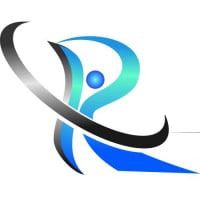
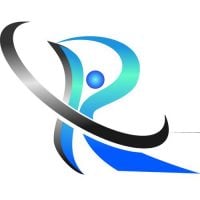

The facility name, logo and brand are the property and registered trademarks of Joan McNamara Center for New Directions, and are being used for identification and informational purposes only. Use of these names, logos and brands shall not imply endorsement. RehabNow.org is not affiliated with or sponsored by Joan McNamara Center for New Directions.


